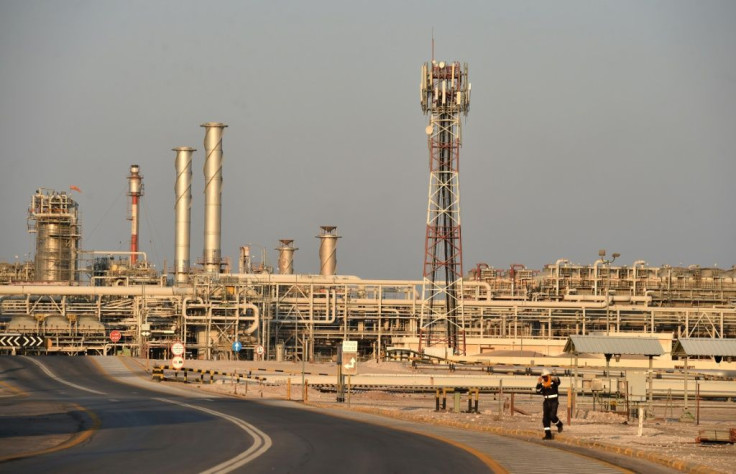Saudi Aramco 2019 Profit Slides 20.6% On Lower Crude Prices

Saudi Aramco reported Sunday a 20.6 percent drop in 2019 net profit due to lower crude prices and production levels, in its first earnings announcement as a listed company amid an escalating price war.
The world's most valuable firm also announced it was slashing its capital expenditure for this year, as the price war with Russia and the spreading coronavirus pandemic rattle energy markets.
These are the first financial results after Aramco's historic $29.4 billion initial public offering and listing on the domestic Tadawul exchange last December. Last week, Aramco shares slipped below the IPO price for the first time.
"Net income was $88.2 billion for the full-year 2019, compared to $111.1 billion in 2018," Aramco said in a statement.
"The decrease was primarily due to lower crude oil prices and production volumes, coupled with declining refining and chemical margins."
The company also declared $1.6 billion of impairment provisions for losses associated with Sadara Chemical Company, an Aramco subsidiary.
Despite a drop in earnings, Aramco said it distributed a dividend of $73.2 billion in 2019. Based on its commitment under the IPO it intends to declare an annual dividend of $75 billion in 2020, it added.
"2019 was an exceptional year for Saudi Aramco. Through a variety of circumstances -- some planned and some not -- the world was offered unprecedented insight into Saudi Aramco's agility and resilience," CEO Amin Nasser said in the statement.
The company is bracing for financial pain as the coronavirus outbreak saps global demand for crude and the ongoing price war between Riyadh and Moscow sends oil markets into a tailspin.
Nasser said the company had taken steps to "rationalise" its planned 2020 capital spending.
Aramco's capital spending last year dropped to $32.8 billion from $35.1 billion in 2018, the statement said.
It expects capital spending, which includes expenditure on projects, to be between $25 billion and $30 billion this year "in light of current market conditions and recent commodity price volatility".
"The recent COVID-19 outbreak and its rapid spread illustrate the importance of agility and adaptability in an ever-changing global landscape," Nasser said.
The price war, likely to weaken Aramco's 2020 first quarter earnings, was triggered by Russia's refusal to agree on additional output cuts to support prices dented by the coronavirus outbreak.
An apparently furious Riyadh responded with a massive production hike and the biggest cuts to prices in two decades, moving to snatch some of Russia's market share and triggering market turmoil.
The kingdom said last week Aramco will pump 12.3 million barrels of oil per day, boosting output by at least 2.5 million bpd.
It also announced plans to raise production capacity from 12 million bpd to 13 million bpd.
"The real question everyone wants to know is what's happening in Q1 2020," said Ellen Wald, author of the book "Saudi Inc.".
"The... insight won't arrive until the next earnings call when we learn how Aramco dealt with the current oil market drama and Saudi politics."
Riyadh's shock and awe strategy has wide-reaching consequences for global oil producers, already reeling from a slump in demand.
In its latest monthly report, the Organization of Petroleum Exporting Countries lowered its forecast for global average daily demand by 0.92 million barrels to 99.73 million barrels.
Saudi Arabia also raised political uncertainty after a royal purge that saw King Salman's brother and nephew detained.
Sources said they were accused of plotting a palace coup to unseat the Crown Prince Mohammed bin Salman, heir to the Saudi throne and de facto ruler.
Aramco shares rallied immediately after the listing on December 11, rising by 19 percent to 38 riyals ($10.1) and temporarily lifting the company's valuation above the $2 trillion mark, which was sought by the crown prince.
But as oil prices tumble, Aramco shares have lost 29 percent from its highest point, slipping below the listing price.
On Thursday, Aramco's market value dropped to around $1.55 trillion, but it still remains the world's largest publicly listed company.
© Copyright AFP 2024. All rights reserved.





















